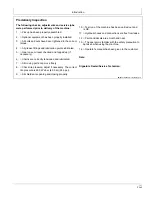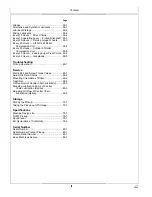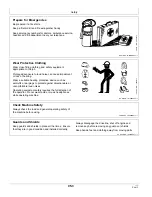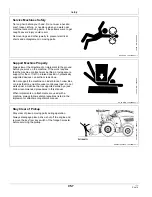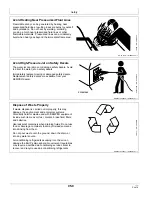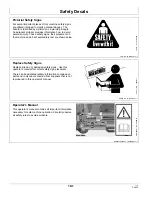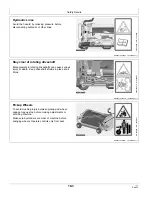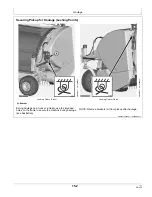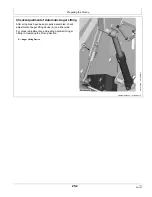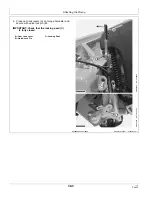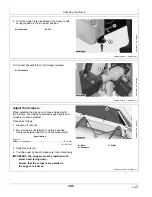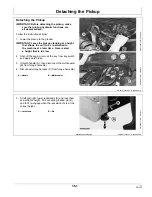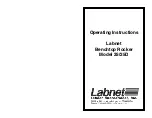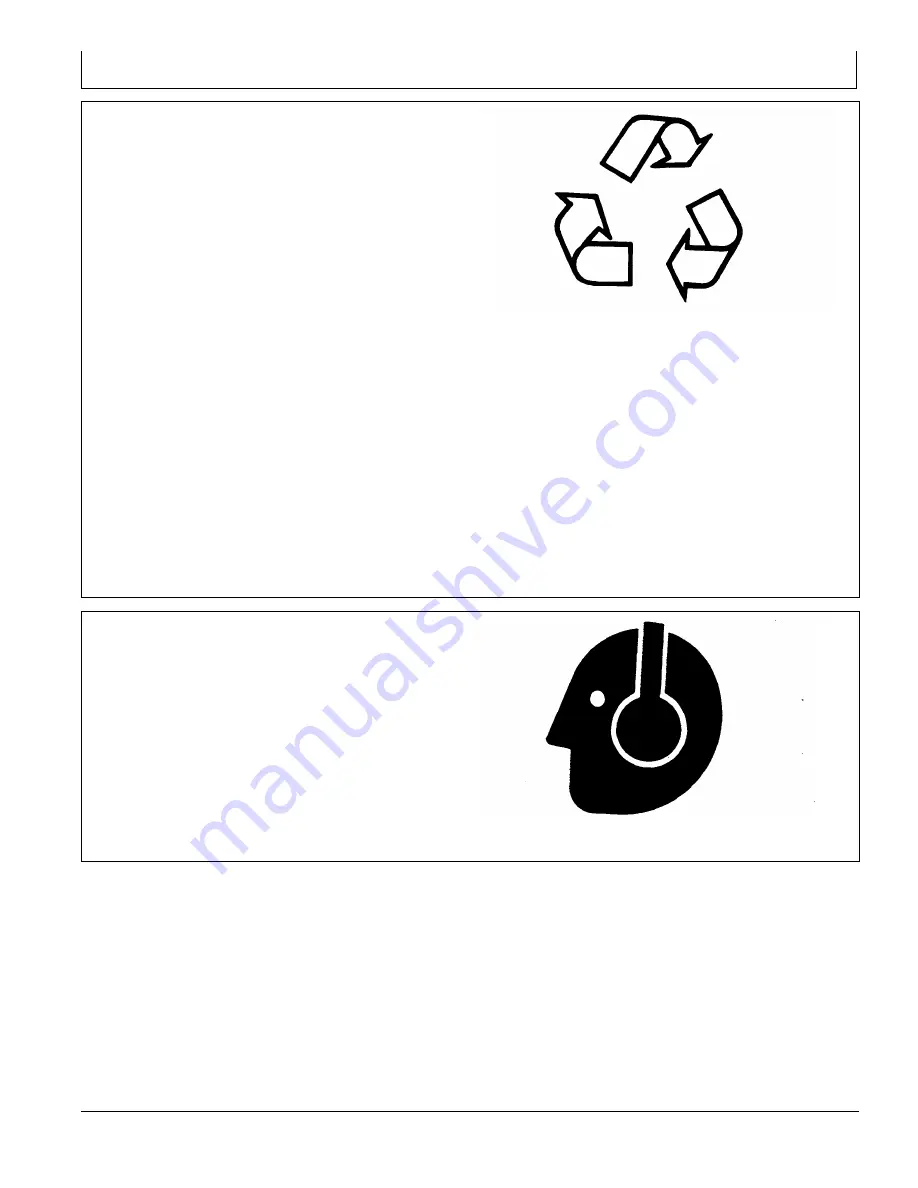
Safety
KM00321,000092B -19-13APR19-1/1
DX,NOISE -19-03OCT17-1/1
Decommissioning: Proper Recycling and
Disposal of Fluids and Components
Safety and environmental stewardship measures must
be taken into account when decommissioning a machine
and/or component. These measures include the following:
•
Use appropriate tools and personal protective
equipment such as clothing, gloves, face shields or
glasses, during the removal or handling of objects and
materials.
•
Follow instructions for specialized components.
•
Release stored energy by lowering suspended machine
elements, relaxing springs, disconnecting the battery
or other electrical power, and releasing pressure in
hydraulic components, accumulators, and other similar
systems.
•
Minimize exposure to components which may have
residue from agricultural chemicals, such as fertilizers
and pesticides. Handle and dispose of these
components appropriately.
•
Carefully drain engines, fuel tanks, radiators, hydraulic
cylinders, reservoirs, and lines before recycling
components. Use leak-proof containers when draining
fluids. Do not use food or beverage containers.
•
Do not pour waste fluids onto the ground, down a drain,
or into any water source.
•
Observe all national, state, and local laws, regulations,
or ordinances governing the handling or disposal of
waste fluids (example: oil, fuel, coolant, brake fluid);
TS1
133
—UN—15APR13
filters; batteries; and, other substances or parts.
Burning of flammable fluids or components in other than
specially designed incinerators may be prohibited by law
and could result in exposure to harmful fumes or ashes.
•
Service and dispose of air conditioning systems
appropriately. Government regulations may require
a certified service center to recover and recycle air
conditioning refrigerants which could damage the
atmosphere if allowed to escape.
•
Evaluate recycling options for tires, metal, plastic,
glass, rubber, and electronic components which may be
recyclable, in part or completely.
•
Contact your local environmental or recycling center, or
your KEMPER dealer for information on the proper way
to recycle or dispose of waste.
Protect Against Noise
There are many variables that affect the sound level
range, including machine configuration, condition and
maintenance level of the machine, ground surface,
operating environmental, duty cycles, ambient noise, and
attachments.
Exposure to loud noise can cause impairment or loss of
hearing.
Always wear hearing protection.
Wear a suitable
hearing protective device such as earmuffs or earplugs
to protect against objectionable or uncomfortable loud
noises.
TS207
—UN—23AUG88
05-10
010421
PN=19
Summary of Contents for Pickup N3003
Page 4: ...Introduction 010421 PN 4...
Page 6: ...Introduction 010421 PN 6...
Page 67: ...Index Index 3 010421 PN 3...
Page 68: ...Index Index 4 010421 PN 4...

